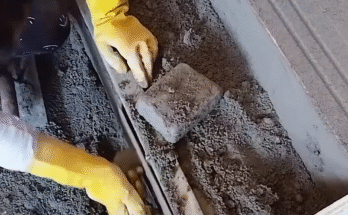Diesel engines are widely used in various applications, from trucks and buses to generators and heavy equipment. Known for their durability and fuel efficiency, diesel engines can last a long time if properly maintained. However, neglecting maintenance can lead to performance issues, increased fuel consumption, or costly breakdowns. This article outlines the essential diesel engine maintenance process to ensure longevity, reliability, and optimal performance.
1. Understanding the Importance of Diesel Engine Maintenance
Unlike gasoline engines, diesel engines operate under higher compression and are built to withstand tougher operating conditions. Despite their robustness, they are still susceptible to wear and tear. Regular maintenance helps:
- Prevent unexpected failures
- Improve fuel efficiency
- Reduce emissions
- Extend engine life
- Ensure safety and compliance
Understanding the basic components and how they interact is the first step toward a successful maintenance routine.
2. Scheduled Maintenance Intervals
Diesel engine maintenance should follow a scheduled service plan, which may vary depending on the engine manufacturer, usage, and environmental conditions. Service intervals typically include:
- Daily or pre-operation checks
- Weekly inspections
- Monthly servicing
- Quarterly and annual overhauls
Operators should consult the engine’s manual for manufacturer-recommended intervals and adapt based on actual usage conditions.
3. Daily Maintenance Checks
Before starting any diesel engine, it’s critical to perform a few quick inspections:
- Oil Level Check: Use the dipstick to verify oil levels. Low oil can lead to overheating and severe engine damage.
- Coolant Level: Check the radiator and coolant reservoir. Inadequate coolant can cause the engine to overheat.
- Visual Inspection: Look for leaks, loose belts, frayed wires, or any unusual damage.
- Fuel Filter Water Separator: Drain any accumulated water from the separator.
- Air Filter Indicator: If equipped, the air filter restriction indicator should be monitored to avoid airflow issues.
These quick checks prevent minor issues from developing into major problems.
4. Weekly and Monthly Maintenance
Weekly maintenance tasks may include:
- Battery Inspection: Clean terminals and check voltage levels.
- Belt Tension and Condition: Inspect for cracks, fraying, or slackness.
- Hose Inspection: Look for swelling, cracks, or leaks.
Monthly maintenance may go deeper:
- Air Filter Cleaning or Replacement: Especially important in dusty environments.
- Fuel System Inspection: Look for leaks or clogged filters.
- Check Exhaust System: Ensure there are no obstructions, rust, or damage that could affect engine breathing.
5. Oil and Filter Changes
Changing the engine oil and oil filter is one of the most important maintenance tasks. Diesel engines operate under high loads, which leads to faster oil degradation.
When to Change Oil
- Refer to the manufacturer’s interval, usually every 250 to 500 hours of operation.
- Heavy-duty or off-road applications may require more frequent changes.
Why It Matters
Old or dirty oil can’t lubricate properly, leading to increased friction, wear, and eventually, engine failure. Replacing the oil filter ensures contaminants are removed from the circulation system.
6. Fuel System Maintenance
Diesel fuel systems are more sensitive than gasoline systems due to their precision. Contaminants, especially water, can wreak havoc on injectors and pumps.
Key Fuel Maintenance Steps:
- Drain Water from Separator: Most diesel systems have a water separator to remove moisture. Drain it regularly.
- Replace Fuel Filters: Typically every 500 hours or as recommended.
- Use Clean Fuel: Always refuel from a reputable source. Consider using additives to improve fuel quality and prevent gelling in cold conditions.
7. Cooling System Care
Diesel engines produce a lot of heat. A healthy cooling system is vital to prevent overheating and engine damage.
Steps Include:
- Inspect Radiator and Hoses: Look for cracks, leaks, or corrosion.
- Check Coolant Quality: Use a hydrometer to test coolant and ensure it has the proper mixture of antifreeze and water.
- Flush Cooling System: Usually required every 1,000 hours or annually.
8. Turbocharger Maintenance
Many diesel engines are equipped with turbochargers to improve efficiency and power. Turbos require clean oil and unrestricted airflow to function properly.
Tips:
- Check for Shaft Play: Excessive movement may indicate wear.
- Inspect Air Intake System: Ensure filters and pipes are free from dirt and leaks.
- Listen for Unusual Noises: Whining or grinding can indicate problems with the turbo.
9. Electrical System and Diagnostics
Modern diesel engines rely on sensors and ECUs (Electronic Control Units) for performance optimization.
Maintenance Involves:
- Scan for Error Codes: Use diagnostic tools to check for stored fault codes.
- Inspect Wiring and Connectors: Look for wear, corrosion, or loose connections.
- Test Alternator and Starter: Ensure proper voltage and function.
10. Emission Control System
With stricter environmental regulations, diesel engines are now equipped with emissions systems like DPF (Diesel Particulate Filters) and SCR (Selective Catalytic Reduction).
Best Practices:
- Regenerate the DPF: Allow automatic or manual regeneration to burn off soot.
- Check DEF Levels: For engines with SCR, ensure Diesel Exhaust Fluid (DEF) levels are adequate.
- Monitor Sensors: Malfunctioning sensors can trigger warning lights and reduce engine performance.
11. Record Keeping and Documentation
Maintaining a logbook of all maintenance activities helps:
- Track service intervals
- Identify recurring issues
- Comply with warranty or regulatory requirements
- Improve resale value of the engine or equipment
Document everything from oil changes to part replacements.
Conclusion
Diesel engine maintenance isn’t just a checklist—it’s a commitment to reliability and efficiency. Regular inspections, timely servicing, and attention to detail can dramatically extend the life of your diesel engine while avoiding costly repairs or downtime. Whether you’re managing a fleet or maintaining a single generator, a proactive maintenance strategy will always pay off in performance and peace of mind.


